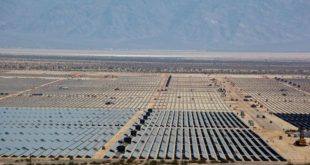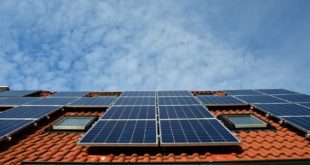AORA TO PROVIDE FIRST SOLAR-BIOGAS HYBRID POWER SOLUTION FOR OFF-GRID COMMUNITIES IN AFRICA
Ethiopian Ministry of Water, Irrigation and Energy Meets with AORA Solar Ahead of Deployment of its Tulip™ Technology
ADDIS ABABA, Ethiopia & REHOVOT, Israel – AORA Solar (www.aora-solar.com), a leading developer of solar-biogas hybrid power technology, today announced it has met with the Ministry of Water, Irrigation and Energy of the Federal Democratic Republic of Ethiopia (www.mowr.gov.et), to plan the construction of an initial pilot of AORA’s Tulip™ solar-hybrid power plant. The meeting follows the March signing of a Memorandum of Understanding (MoU) between the parties.
The project is tied to Ethiopia’s Climate-Resilient Green Economy Strategy, in which the country aims to enhance access to affordable and environmentally friendly renewable energy. The goal is to provide adequate uninterruptible and grid independent power to support the achievement of middle-income status by 2025 while developing a green economy.
“We are transforming our Green Economy Strategy into action and are pleased to partner with AORA to help achieve our vision,” said H.E. Mr. Alemayehu Tegenu, Minister of Water, Irrigation and Energy for Ethiopia. “AORA’s unique solar-hybrid technology is impressive and well-suited to provide both energy and heat to support local economic development in off-grid rural locations in Ethiopia.”
Construction of the first pilot plant is expected to begin by mid-2015. Following the trial, the Ministry intends to expand deployment of AORA installations for rural economic development to off-grid communities in selected areas of the country. The AORA Tulip technology requires less land per kWh to generate usable power and heat than other systems. Each Tulip station is small and modular, producing 100kW of electricity in addition to 170kW of heat, while occupying less than 3,500 square meters (0.86 acres).
AORA’s technology runs not only on solar radiation, but also on almost any gaseous or liquid fuel, including biogas, biodiesel and natural gas. This enables a variety of operational modes – from solar-only mode, where electricity is supplied from ample sunlight, to hybrid-mode, where fuel helps generate full power when sunlight is insufficient, to fuel-only mode during night hours or heavily overcast periods. This guarantees an uninterrupted and stable power supply 24 hours a day in all weather conditions.
“We are pleased to partner with the Ministry and look forward to bringing our technology to Ethiopia to provide the population with affordable access to power,” said Zev Rosenzweig, CEO of AORA. “Such access will have significant social and economic impact on off-grid communities, helping to provide power to schools and medical facilities, refrigeration for food processing and post-harvest storage, groundwater pumping and much more.
 Alternative Energy HQ solar power for homes, wind energy, and bio fuel issues
Alternative Energy HQ solar power for homes, wind energy, and bio fuel issues

 Ethiopia, Icelander firm negotiate geothermal power generation
Ethiopia, Icelander firm negotiate geothermal power generation




